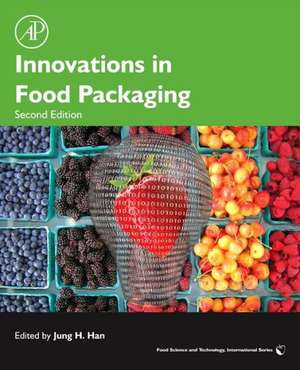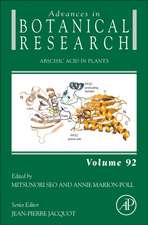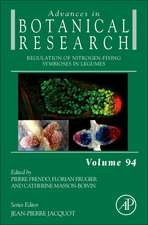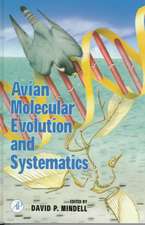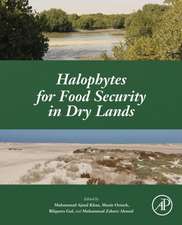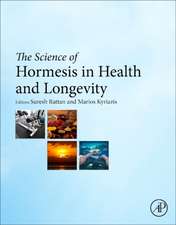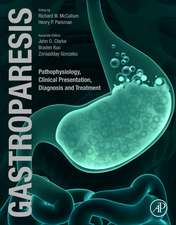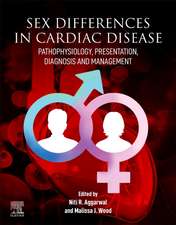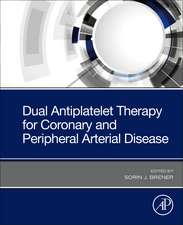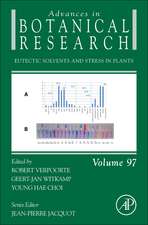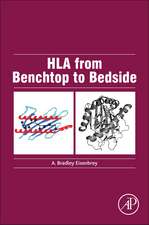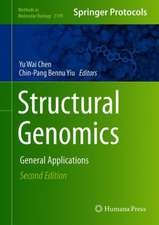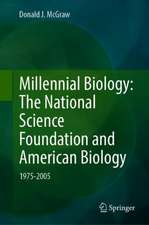Innovations in Food Packaging
Editat de Jung H. Hanen Limba Engleză Hardback – 24 oct 2013
Today's packaging not only contains and protects food, but where possible and appropriate, it can assist in inventory control, consumer education, increased market availability and shelf life, and even in ensuring the safety of the food product. As nanotechnology and other technologies have developed, new and important options for maximizing the role of packaging have emerged.
This book specifically examines the whole range of modern packaging options. It covers edible packaging based on carbohydrates, proteins, and lipids, antioxidative and antimicrobial packaging, and chemistry issues of food and food packaging, such as plasticization and polymer morphology. Professionals involved in food safety and shelf life, as well as researchers and students of food science, will find great value in this complete and updated overview.
- Over 60% updated content — including nine completely new chapters — with the latest developments in technology, processes and materials
- Now includes bioplastics, biopolymers, nanoparticles, and eco-design of packaging
Preț: 819.43 lei
Preț vechi: 900.47 lei
-9% Nou
Puncte Express: 1229
Preț estimativ în valută:
156.81€ • 162.01$ • 130.44£
156.81€ • 162.01$ • 130.44£
Carte tipărită la comandă
Livrare economică 12-26 martie
Preluare comenzi: 021 569.72.76
Specificații
ISBN-13: 9780123946010
ISBN-10: 0123946018
Pagini: 624
Ilustrații: Illustrations
Dimensiuni: 191 x 235 x 33 mm
Greutate: 1.41 kg
Ediția:2. Auflage.
Editura: ELSEVIER SCIENCE
ISBN-10: 0123946018
Pagini: 624
Ilustrații: Illustrations
Dimensiuni: 191 x 235 x 33 mm
Greutate: 1.41 kg
Ediția:2. Auflage.
Editura: ELSEVIER SCIENCE
Public țintă
Specialists in the food packaging industries, scientists involved in shelf-life and food safety, advanced food science students at universitiesCuprins
Part 1: Physical chemistry fundamentals for food packaging
1. Food packaging technologies and innovations: review
2. General characteristics of packaging materials
3. Mass transfer through packaging materials
4. Surface chemistry for foods and packaging materials
5. Plasticization and polymer morphology
Part 2: Active and intelligent packaging
6. Active packaging review
7. Antioxidative packaging system
8. Antimicrobial packaging system
9. Intelligent packaging for foods and agri-foods products
Part 3: Edible coating and films
10. Edible coatings review
11. Processes and applications for edible coating/film materials from agropolymers
12. Edible coating and film materials: proteins
13. Edible coating and fil materials: carbohydrates
14. Edible coating and film materials: lipids and lipid emulsions
Part 4: Biopolymer Packaging
15. Bio-plastics: chemistry and physics
16. Utilization of biopolymers for packaging industry
17. Thermoplastic starch
18. Composite materials with nano-particles
Part 5: Commercial food packaging innovations
19. Modified atmosphere packaging for fruits and vegetables
20. Modified atmosphere packaging for meats, poultry and fish
21. Modified atmosphere packaging for ready-to-eat products
22. Microwavable packaging
23. Packaging for non-thermal processing
24. Eco-design for packaging innovations
25. New packaging technologies and materials for fast-moving consumer products
1. Food packaging technologies and innovations: review
2. General characteristics of packaging materials
3. Mass transfer through packaging materials
4. Surface chemistry for foods and packaging materials
5. Plasticization and polymer morphology
Part 2: Active and intelligent packaging
6. Active packaging review
7. Antioxidative packaging system
8. Antimicrobial packaging system
9. Intelligent packaging for foods and agri-foods products
Part 3: Edible coating and films
10. Edible coatings review
11. Processes and applications for edible coating/film materials from agropolymers
12. Edible coating and film materials: proteins
13. Edible coating and fil materials: carbohydrates
14. Edible coating and film materials: lipids and lipid emulsions
Part 4: Biopolymer Packaging
15. Bio-plastics: chemistry and physics
16. Utilization of biopolymers for packaging industry
17. Thermoplastic starch
18. Composite materials with nano-particles
Part 5: Commercial food packaging innovations
19. Modified atmosphere packaging for fruits and vegetables
20. Modified atmosphere packaging for meats, poultry and fish
21. Modified atmosphere packaging for ready-to-eat products
22. Microwavable packaging
23. Packaging for non-thermal processing
24. Eco-design for packaging innovations
25. New packaging technologies and materials for fast-moving consumer products
Recenzii
"This is a snapshot of the current state-of-the-art technologies and concepts in the field, written by a team of international food and packaging scientists. Physical chemistry fundamentals are briefly introduced in the first part of the book, and further sections describe specific breakthrough technologies; active and intelligent packaging, edible coating and biopolymers and films… Discussion throughout is rigorous and…quite interesting even to a layman." --ProtoView.com, February 2014
"Innovations in Food Packaging recognizes that food packaging is a fast-growing area that impacts upon the important areas of product shelf-life and food safety. Each chapter provides information on the scientific background, new material development and utilization, and case studies of the use of new system for perishable food products." --European Federation of Food Science and Technology Newsletter, July 2013
"Innovations in Food Packaging recognizes that food packaging is a fast-growing area that impacts upon the important areas of product shelf-life and food safety. Each chapter provides information on the scientific background, new material development and utilization, and case studies of the use of new system for perishable food products." --European Federation of Food Science and Technology Newsletter, July 2013
